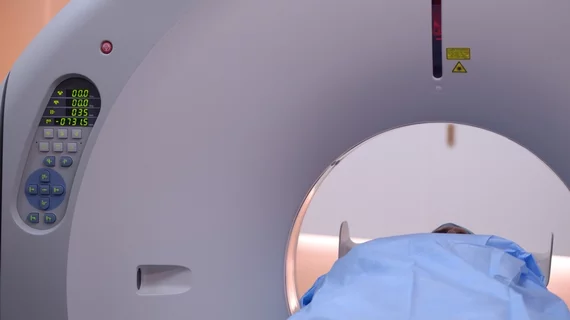Routine abdominal CTs offer insight into cardiovascular risk
With the help of artificial intelligence, computed tomography scans of the abdomen could present an opportunity to also screen for signs of cardiovascular disease, according to researcher presented during this year’s annual RSNA meeting.
Although the benefits of artificial intelligence in radiology settings are plentiful, there is one application that providers expressed great interest in during the meeting—opportunistic screening. There are numerous AI algorithms on the market that enable providers to assess imaging for indications outside of an exam’s clinical intent. But for this most recent study, researchers from NYU Langone Health analyzed AI’s ability to identify and quantify aortic calcium using routine abdominal CT scans, which represent a significant portion of radiologists’ workloads.
“Instead of relying on dedicated CT scans of coronary arteries, which are rare and not always covered by insurance, to find potentially fatal heart disease, we seek to use AI to help screen abdominal CT scans that are done for many reasons to opportunistically catch heart disease more often and earlier,” said study senior investigator Miriam A. Bredella, MD, MBA, the Bernard and Irene Schwartz Professor of Radiology and director of the Clinical and Translational Science Institute at NYU Grossman School of Medicine.
Bredella and team retrospectively applied an AI calcium scoring algorithm to just under 4,000 abdominal CT scans of patients who had also completed dedicated CT coronary studies. The algorithm provided measurements of calcium throughout the aorta, which the team later used to compare to patients’ coronary CT scans.
Through this, researchers were able to identify a relationship between patients’ aortic calcium and calcification of their coronary arteries. What’s more, the presence of aortic calcium also was found to be associated with greater risk of major cardiovascular events.
Patients with aortic calcium were 2.2 times more likely to have a heart attack, brain blockage or other cardiovascular event requiring restoration of blood flow to the heart within three years of their initial scans. AI also detected aortic calcium in 29% of patients who were unaware that they had any calcium buildup, the group noted.
Although the findings are positive, more research is needed to determine if similar opportunistic screening algorithms are sufficient for reliably identifying early signs of disease, those involved contend.

